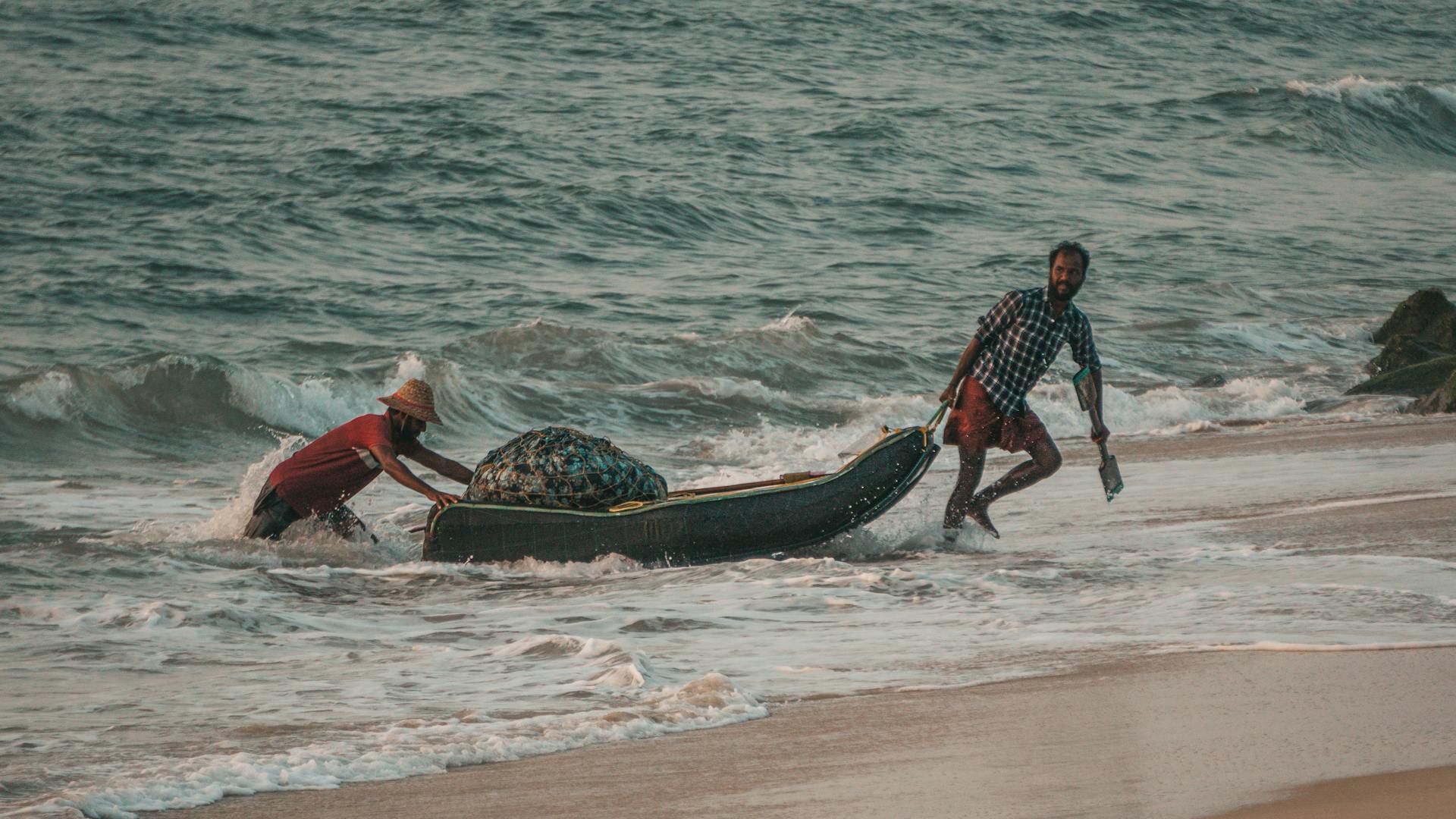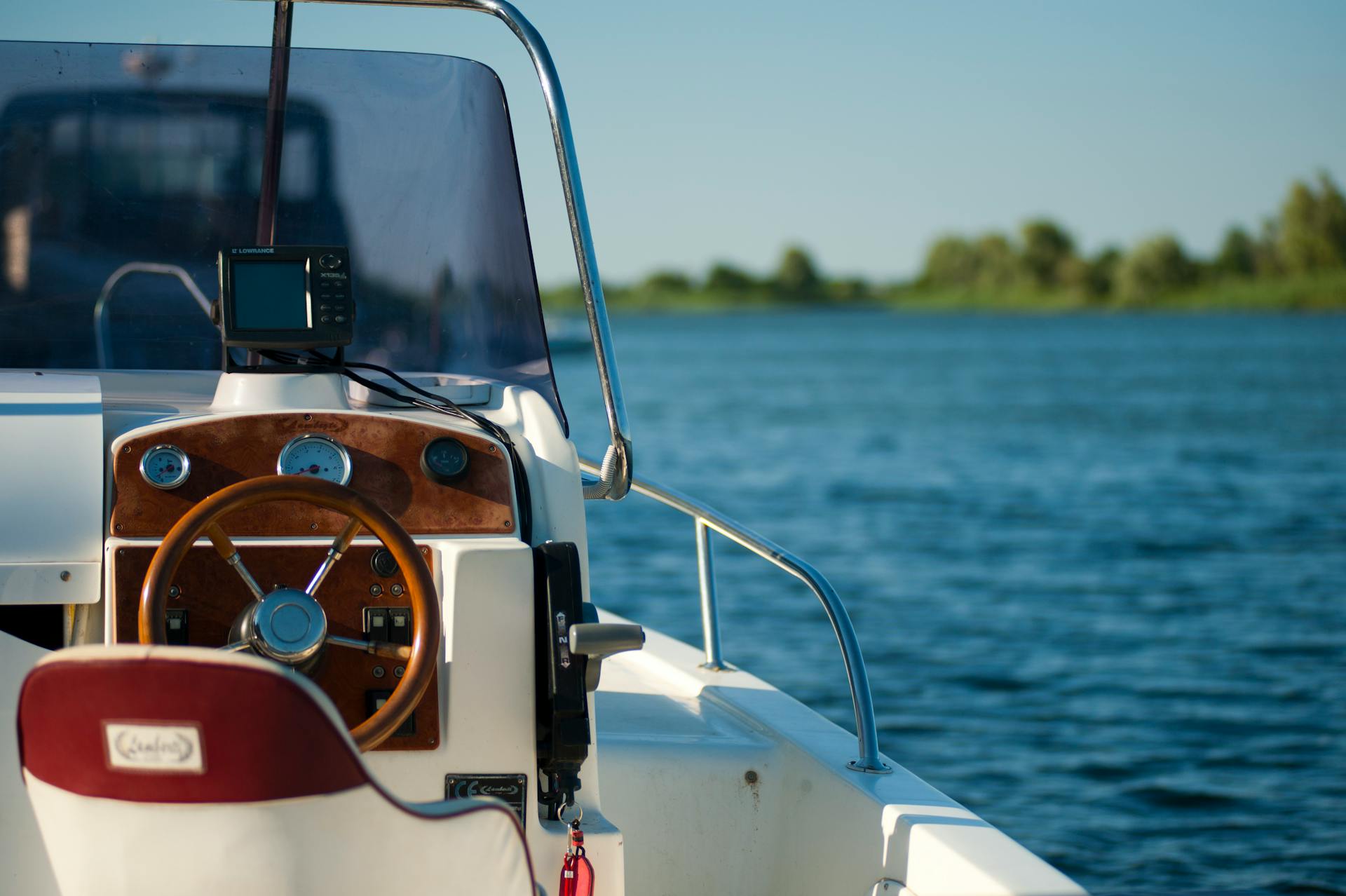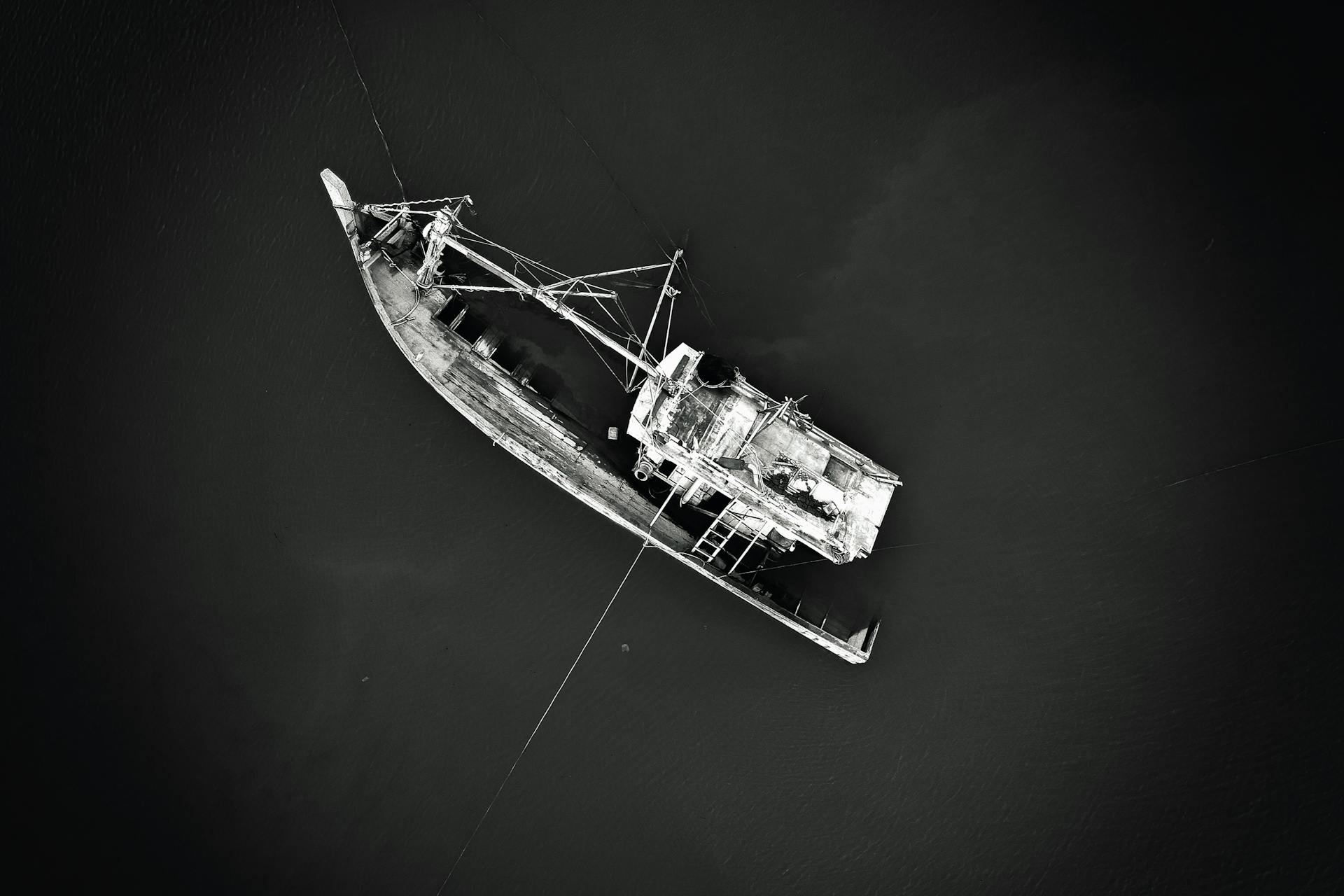
Boat insurance can be a lifesaver, but it's essential to understand what's covered in case of an emergency. Most boat insurance policies cover sinking, but the extent of the coverage varies depending on the policy.
The average cost of boat insurance is around $200-$300 per year, but this can increase depending on the type of boat, its value, and the location where it's stored. For example, a policy for a small sailboat might cost less than $100 per year.
If your boat sinks, the insurance company will likely send an adjuster to assess the damage and determine the cause of the sinking. This is a crucial step in the claims process, as it helps the insurance company determine what's covered and what's not.
You can expect the insurance company to cover the cost of repairs or replacement, but you may need to pay a deductible, which can range from $500 to $2,000.
What's Covered?
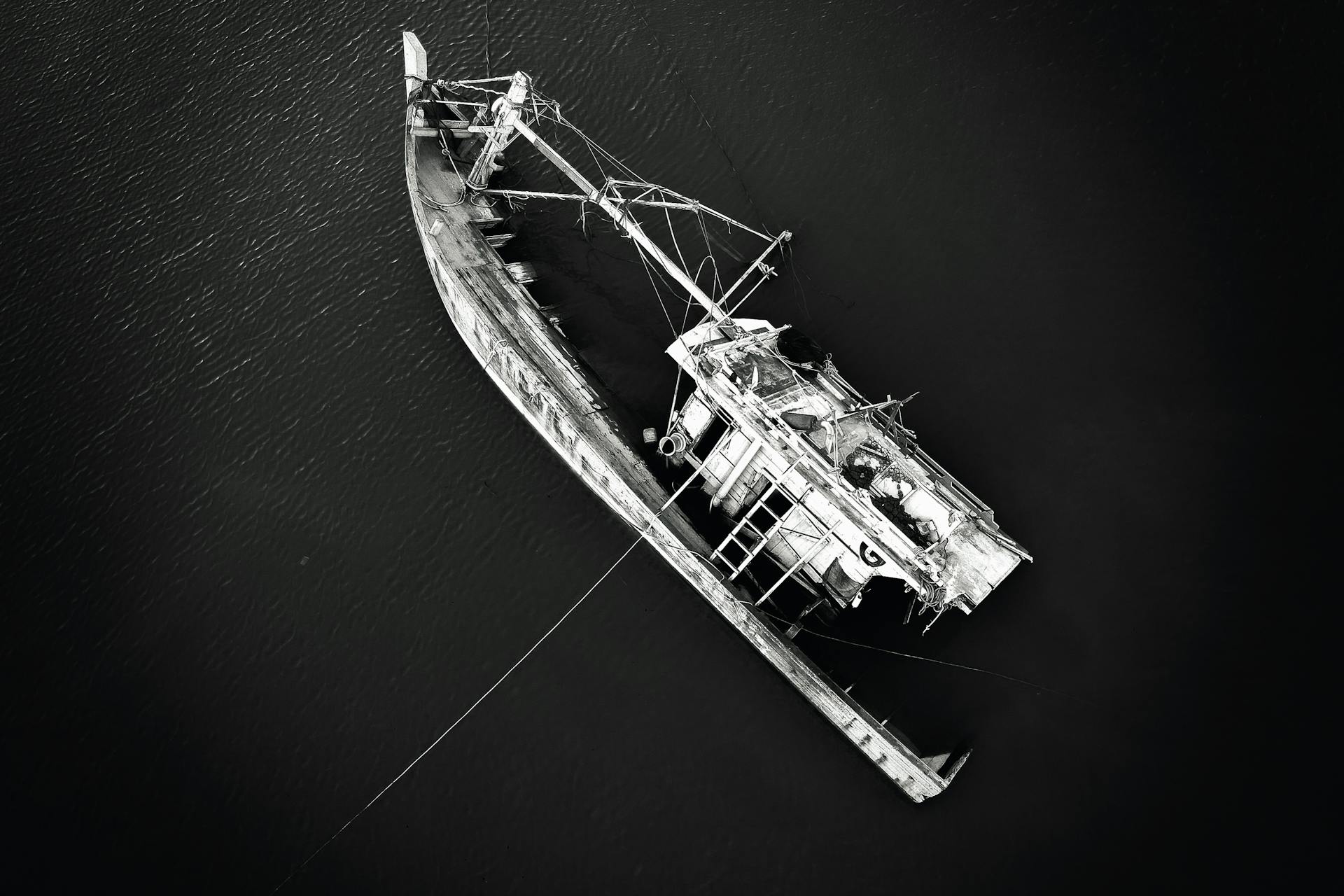
So, what's covered in a standard boat insurance policy? Typically, physical damage coverage includes incidents where the boat sinks, but the extent of this coverage can vary based on several factors, including the cause of the sinking, the condition of the boat, and the terms of the policy.
You can choose between an actual cash value policy, which covers your vessel for its fair market price around the time of its purchase, or an agreed-upon value policy, which doesn't factor in depreciation and will reimburse you for the agreed-upon amount after your boat sinks.
If your boat is brand new, you may be able to purchase total replacement cost or guaranteed replacement cost coverage, which will likely be the most expensive option. This will allow your insurer to buy you a brand new boat of the same make and model to replace your damaged one.
Here are some types of coverage you can expect to find in a standard boat insurance policy:
- Physical Damage Coverage: Covers damage to the boat itself, including the hull, machinery, and equipment.
- Liability Coverage: Protects the boat owner if they are found liable for damage to other boats, property, or injuries to other people.
- Medical Payments Coverage: Covers medical expenses for injuries sustained by the boat owner or passengers.
- Uninsured/Underinsured Boater Coverage: Protects the boat owner if they are involved in an accident with an uninsured or underinsured boater.
- Personal Effects Coverage: Covers personal items on the boat, such as fishing gear or electronics.
- Towing and Assistance Coverage: Covers the cost of towing the boat if it becomes disabled on the water.
Your policy will also have a deductible, and if you have a mortgage on your boat, the insurer will pay off the outstanding loan before issuing you a check.
Types of Coverage
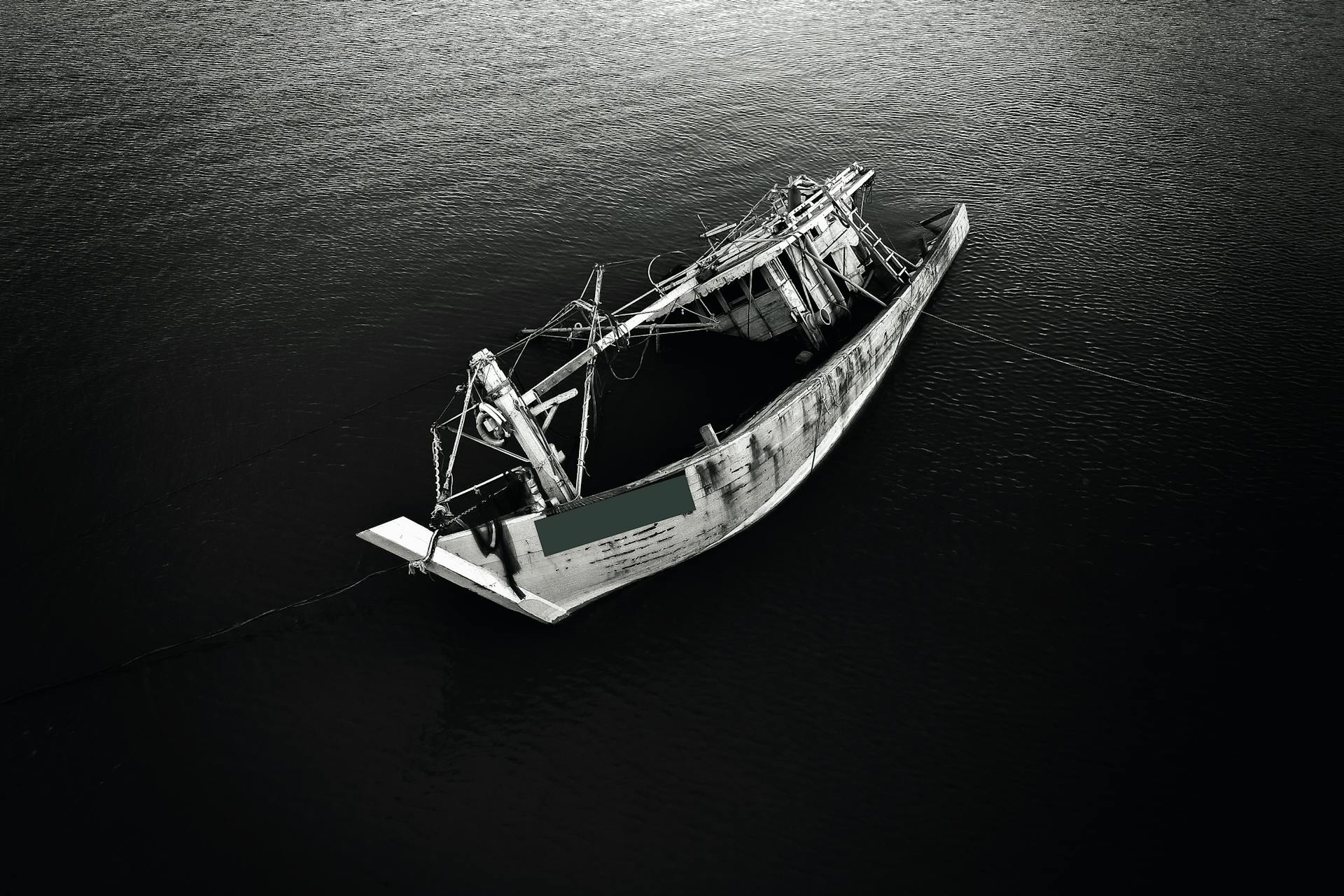
Physical damage coverage is a must-have for boat owners, covering damage to the hull, machinery, and equipment. This type of coverage will help you repair or replace your boat if it's damaged in an accident.
Liability coverage is another essential type of coverage, protecting you if you're found liable for damage to other boats, property, or injuries to other people. This coverage is usually the least expensive form of insurance.
Medical payments coverage is a type of coverage that covers medical expenses for injuries sustained by the boat owner or passengers. This coverage is a good idea if you plan on having guests on board your boat.
Uninsured/underinsured boater coverage is a type of coverage that protects you if you're involved in an accident with an uninsured or underinsured boater. This coverage can help you cover the costs of damages or injuries.
Personal effects coverage covers personal items on the boat, such as fishing gear or electronics. This type of coverage is a good idea if you have valuable items on board your boat.
Take a look at this: Life Insurance That Covers an Insured's Whole Life
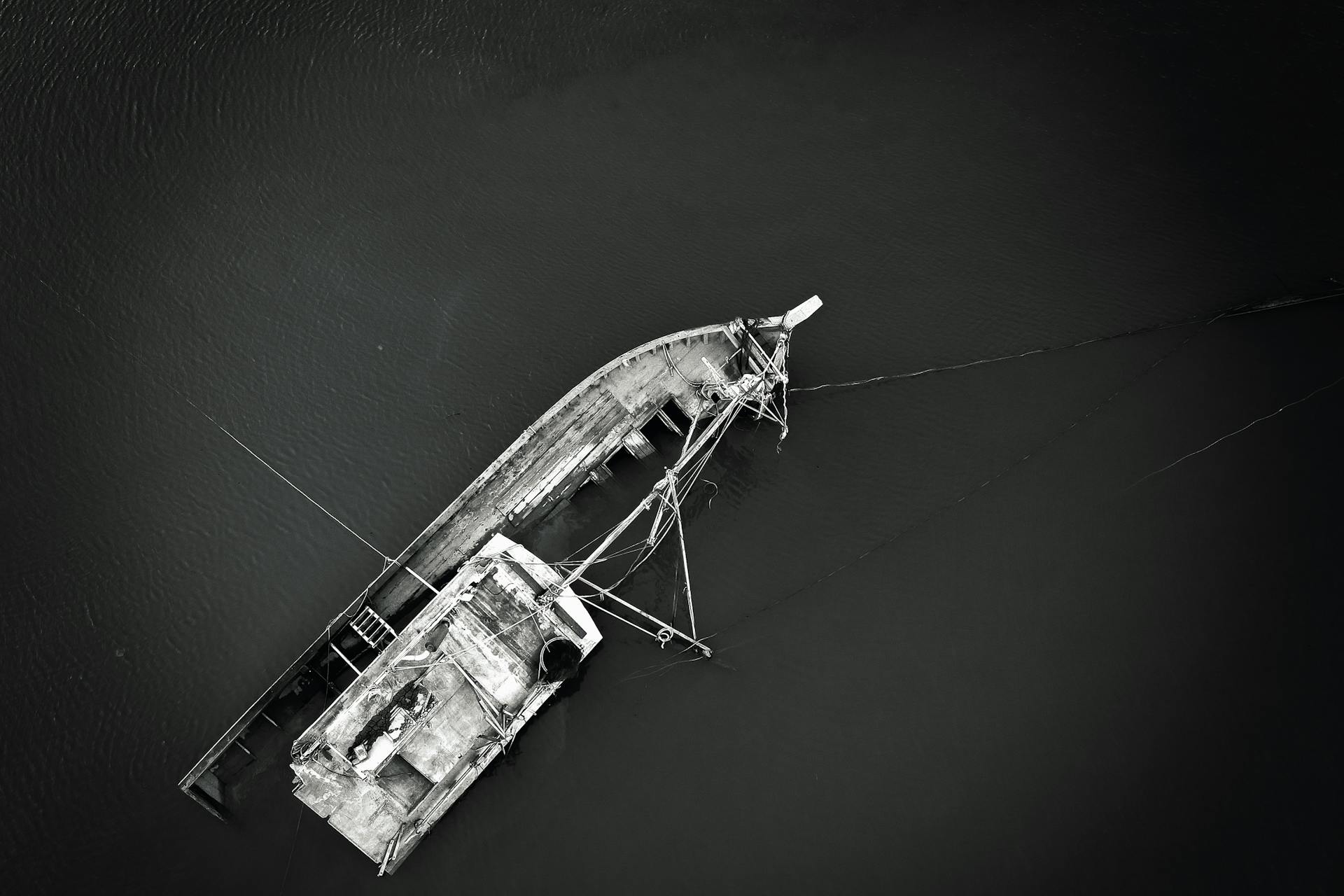
Towing and assistance coverage covers the cost of towing the boat if it becomes disabled on the water. This type of coverage can be a lifesaver if you're stranded on the water.
Here are the different types of coverage available for boats:
- Liability Insurance: covers damage by the boat to other boats or injuries to others
- Hull Insurance: pays for losing the vessel (may be difficult or impossible to get for smaller, older boats)
Sails and tenders are usually covered if they're attached to or on the boat when it sinks, but damage to sails is not usually covered due to wear and tear.
Policy and Claims
Choosing the right boat insurance policy is essential to ensure adequate protection for sinking incidents.
Not all boat insurance policies are created equal, so take the time to compare different policies from various insurers. Look for policies that specifically mention coverage for sinking and review the exclusions and limitations.
Ensure that the policy limits are sufficient to cover the full value of your boat and any potential liabilities. This includes both the replacement cost of the boat and any additional costs associated with a sinking incident, such as environmental cleanup.
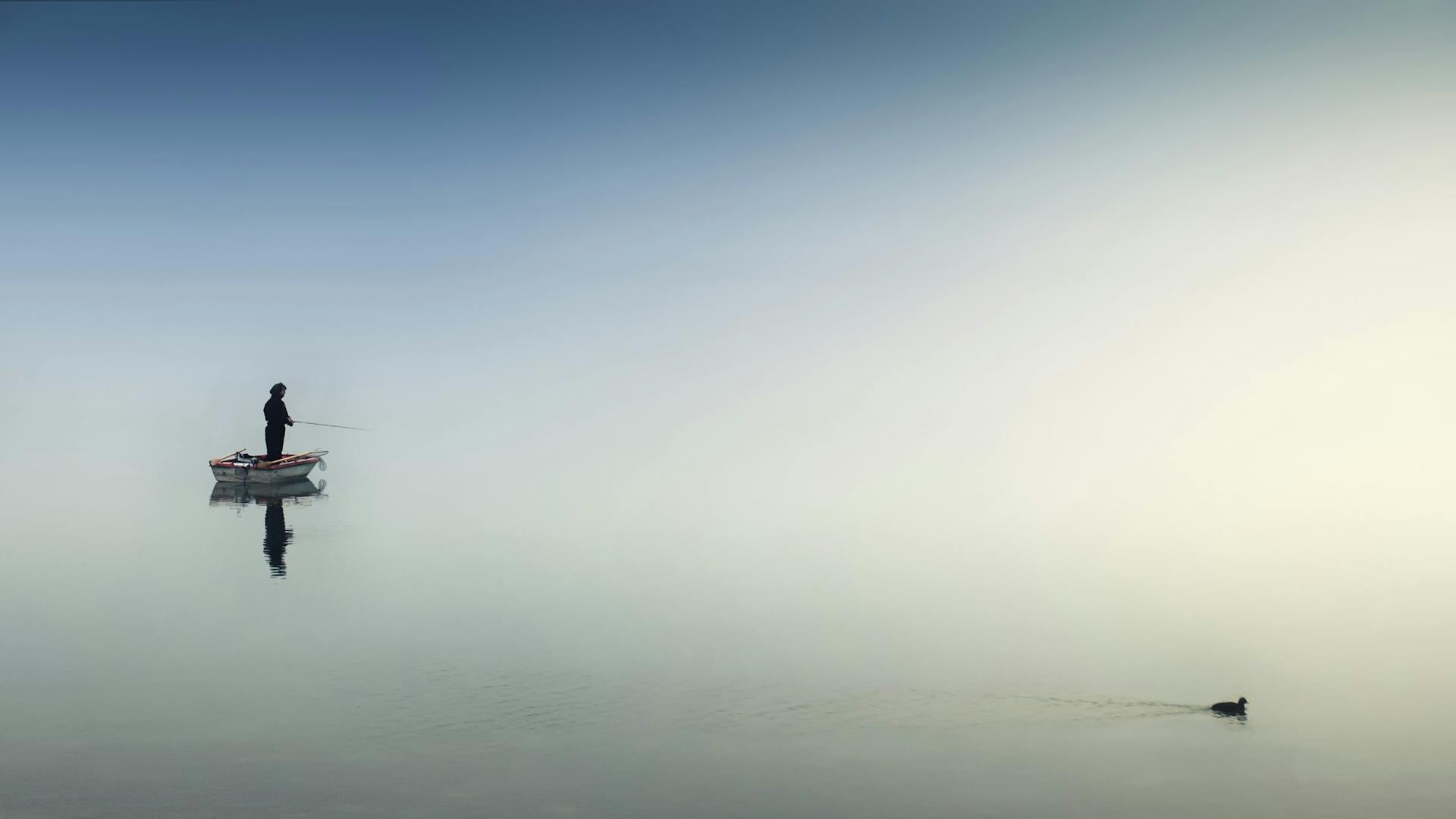
Familiarize yourself with the boat insurance claims process outlined by the insurance company. Knowing what to expect can help you navigate the process more efficiently if you ever need to file a claim.
The extent of sinking coverage can vary based on several factors, including the cause of the sinking, the condition of the boat, and the terms of the policy.
What Exclusions Limit Coverage?
Exclusions in boat insurance policies can be complex, but understanding them is crucial to ensure you're covered in case of a sinking incident. Some common exclusions include negligence, wear and tear, and intentional acts.
If the insurance company determines that the sinking was due to negligence, such as failure to maintain the boat properly, the claim may be denied. This is a common exclusion found in most policies.
Geographic exclusions are also common, limiting coverage to a specific cruising range. For example, if your boat is in New England, your policy may only cover coastal and inland waters of the United States from Cape May, NJ through Maine.
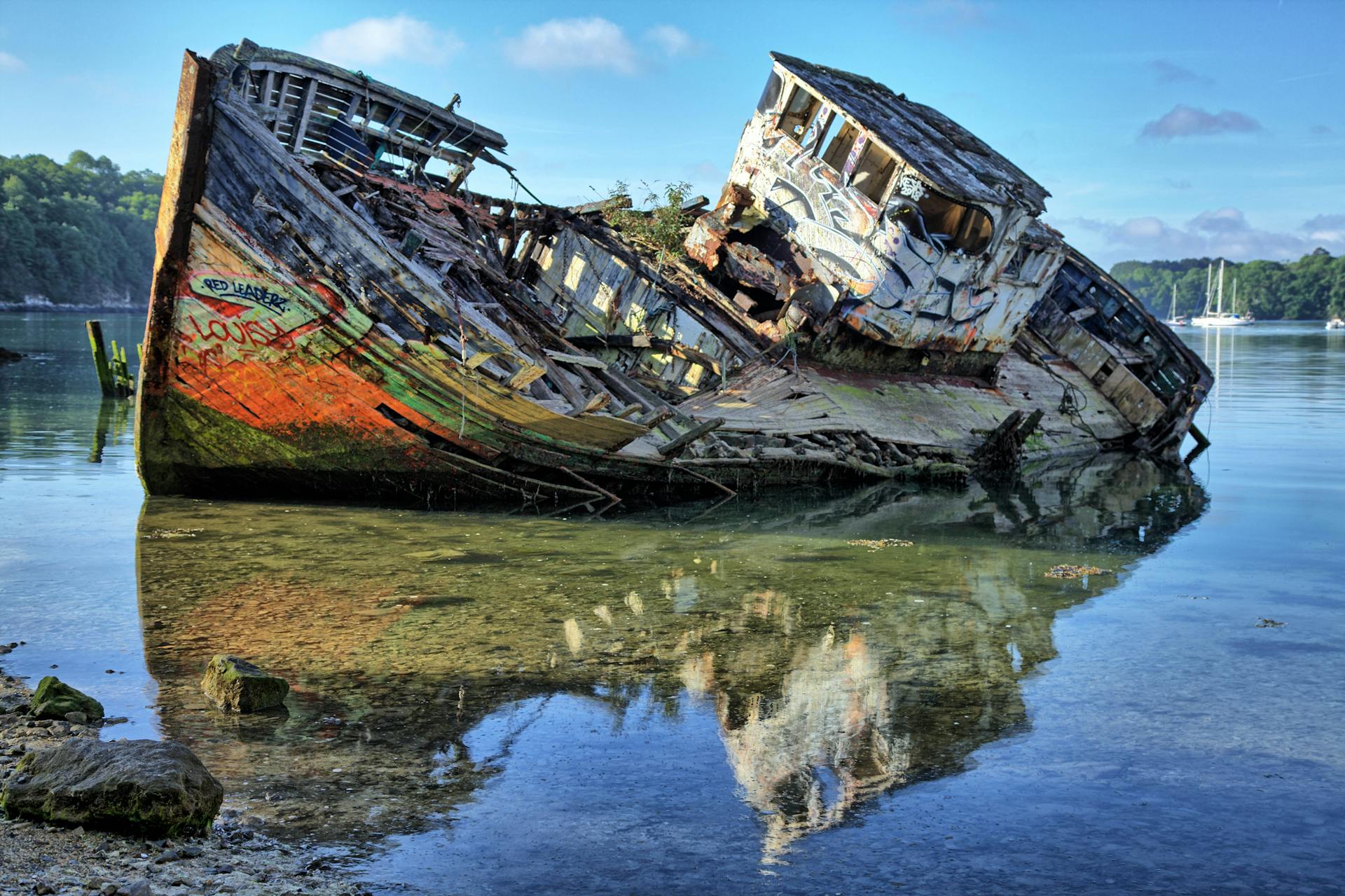
Named storms, such as tropical storms and hurricanes, can also be excluded from coverage, especially if the boat is in a designated high-risk area. Calendar exclusions may also apply, restricting when the boat can be in the water or out of the water.
Acts of war and terrorism are typically excluded from coverage, and taking your boat into a war zone or high-risk area can void your policy.
Some less common exclusions include chartering, crew number or skill requirements, and failure to comply with survey recommendations. Negligence in operation or maintenance can also lead to denied claims.
Here are some common exclusions to be aware of:
Remember, understanding these exclusions can help you navigate the complex world of boat insurance and ensure you're protected in case of a sinking incident.
Condition and Maintenance
Proper maintenance is key to preventing boat insurance claims from being denied. Regular inspections can help identify potential issues before they become major problems.
Insurance companies expect boat owners to keep detailed records of maintenance and repairs. This can support a claim if a sinking incident occurs due to avoidable issues.
Regular maintenance can help prevent accidents and ensure the boat remains in good condition.
Environmental Regulations

Environmental concerns are a serious issue when a boat sinks, especially if fuel or hazardous materials spill into the water. Arkansas has strict regulations regarding environmental protection.
Boat owners in Arkansas may be held liable for cleanup costs if their vessel sinks and causes an environmental spill. Having appropriate liability coverage can help mitigate these costs.
Fuel or hazardous material spills can have devastating effects on the environment, and it's essential to have the right insurance coverage to protect yourself from the financial burden of cleanup costs.
On a similar theme: Insurance Cover or Coverage
Steps to Take
If your boat sinks, your first priority is to ensure the safety of all passengers. Contact emergency services if needed.
You should report the incident to the authorities, such as the local marine patrol or the Arkansas Game and Fish Commission, as required.
Take photographs and gather evidence of the sinking and any related damage, as this documentation will be crucial for your insurance claim.
Contact your insurance company as soon as possible to report the sinking and provide them with all the necessary information and documentation.
To prevent further damage to the boat or mitigate environmental impact, take reasonable steps such as securing the vessel or arranging for salvage.
Worth a look: Does Boat Insurance Cover Hurricane Damage
Understanding Coverage
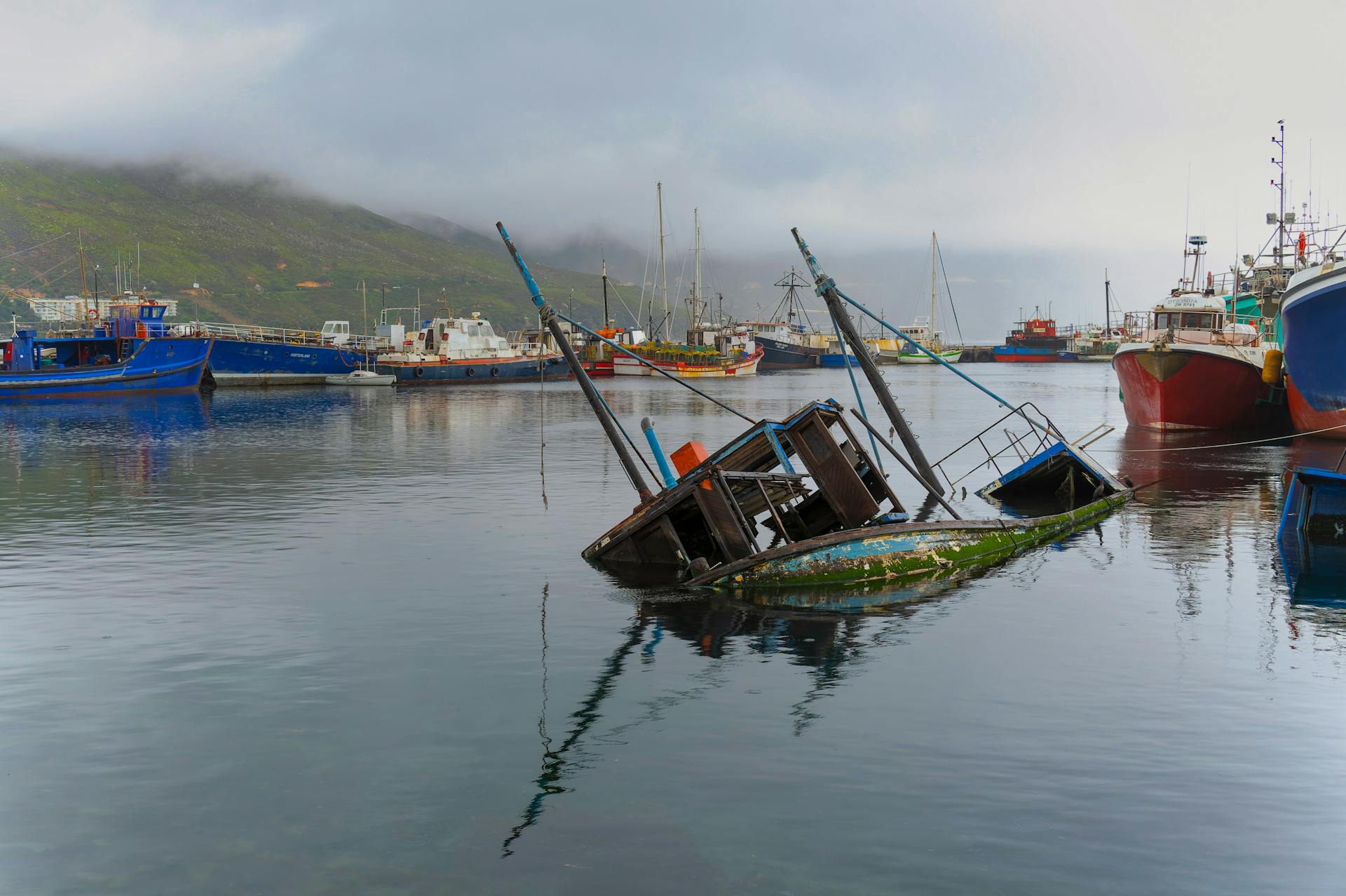
Boat insurance policies are designed to protect boat owners from financial loss due to various risks, including damage, theft, and liability.
To determine how much you'll be reimbursed for your vessel after it sinks, you need to look at your policy's coverage. The most affordable way to insure your boat is for its actual cash value, which covers your vessel for its fair market price around the time of its purchase.
This type of coverage factors in depreciation, meaning your coverage amount will gradually decrease over time as your boat gets older. Agreed-upon value coverage, on the other hand, doesn't factor in depreciation and will reimburse you for the agreed-upon value of your boat, no matter how old it is at the time of damage.
With total replacement cost coverage, your insurer can buy you a brand new boat of the same make and model to replace your damaged one in case of a covered loss. This type of coverage is usually only available for boats under a year or two old.
Additional reading: Marine Liability Coverage
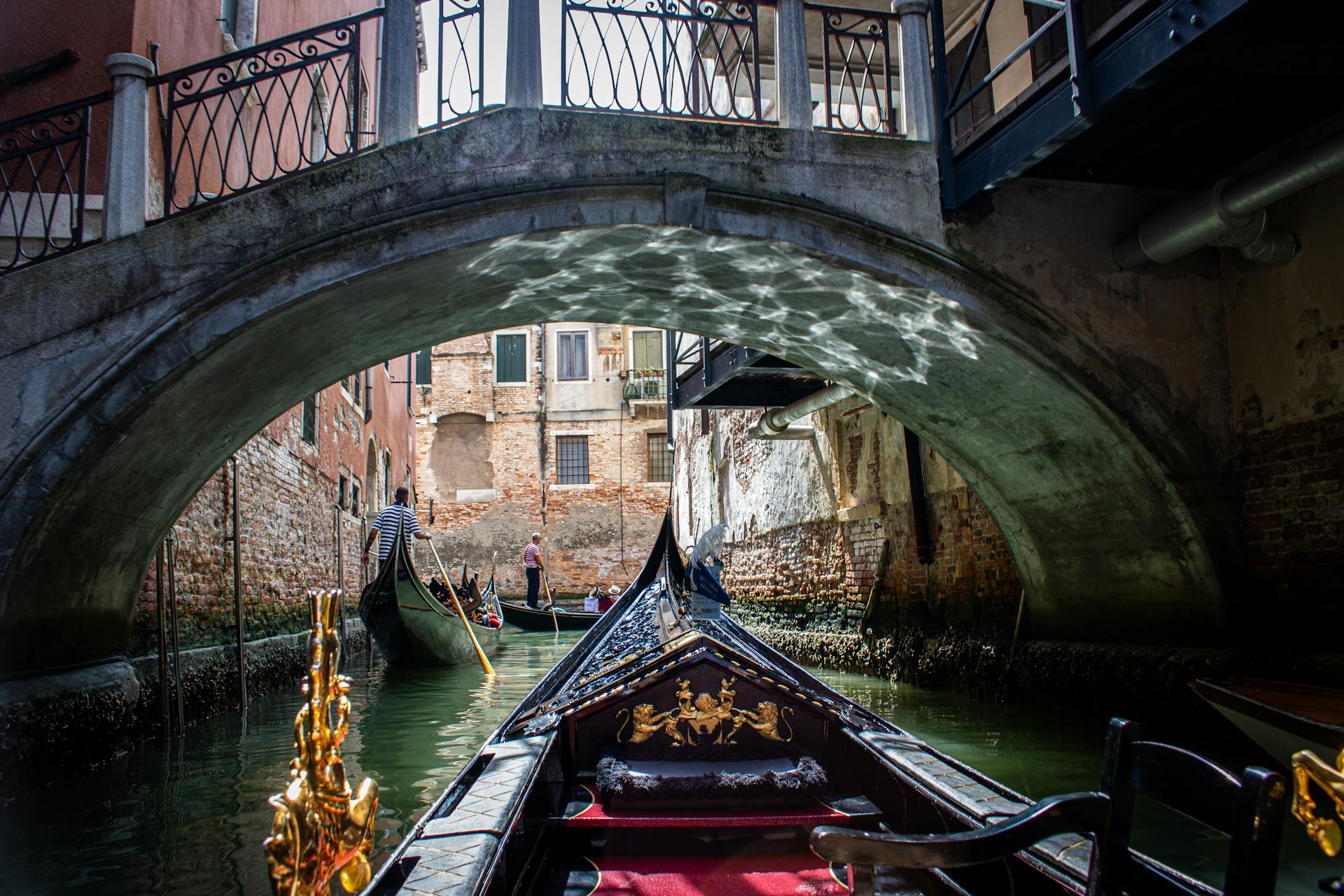
If you have comprehensive coverage and you were operating your boat properly, boat insurance should cover hitting a rock. However, if you were driving unreasonably fast, or you were intoxicated, or there was some other condition that could be considered negligence, your insurance may exclude the damage.
Your policy may have a couple of ways of helping you deal with salvage and removal costs if your boat sinks as a result of the accident. Some policies have potential salvage, removal, and wreckage costs built in that won't affect your payout for your boat.
In Arkansas, boat insurance is not legally required, but it is highly recommended due to the significant financial protection it offers. Boat insurance policies typically offer several types of coverage, including physical damage coverage, liability coverage, medical payments coverage, uninsured/underinsured boater coverage, personal effects coverage, and towing and assistance coverage.
Sources
- https://clovered.com/does-boat-insurance-cover-sinking/
- https://www.robinsonstith.com/2022/07/29/does-boat-insurance-cover-sinking/
- https://www.expertins.net/blog/mercury-boat-insurance-cover-sinking/
- https://www.gg-insurance.com/does-boat-insurance-cover-sinking-in-arkansas/
- https://improvesailing.com/questions/does-boat-insurance-cover-sinking
Featured Images: pexels.com

